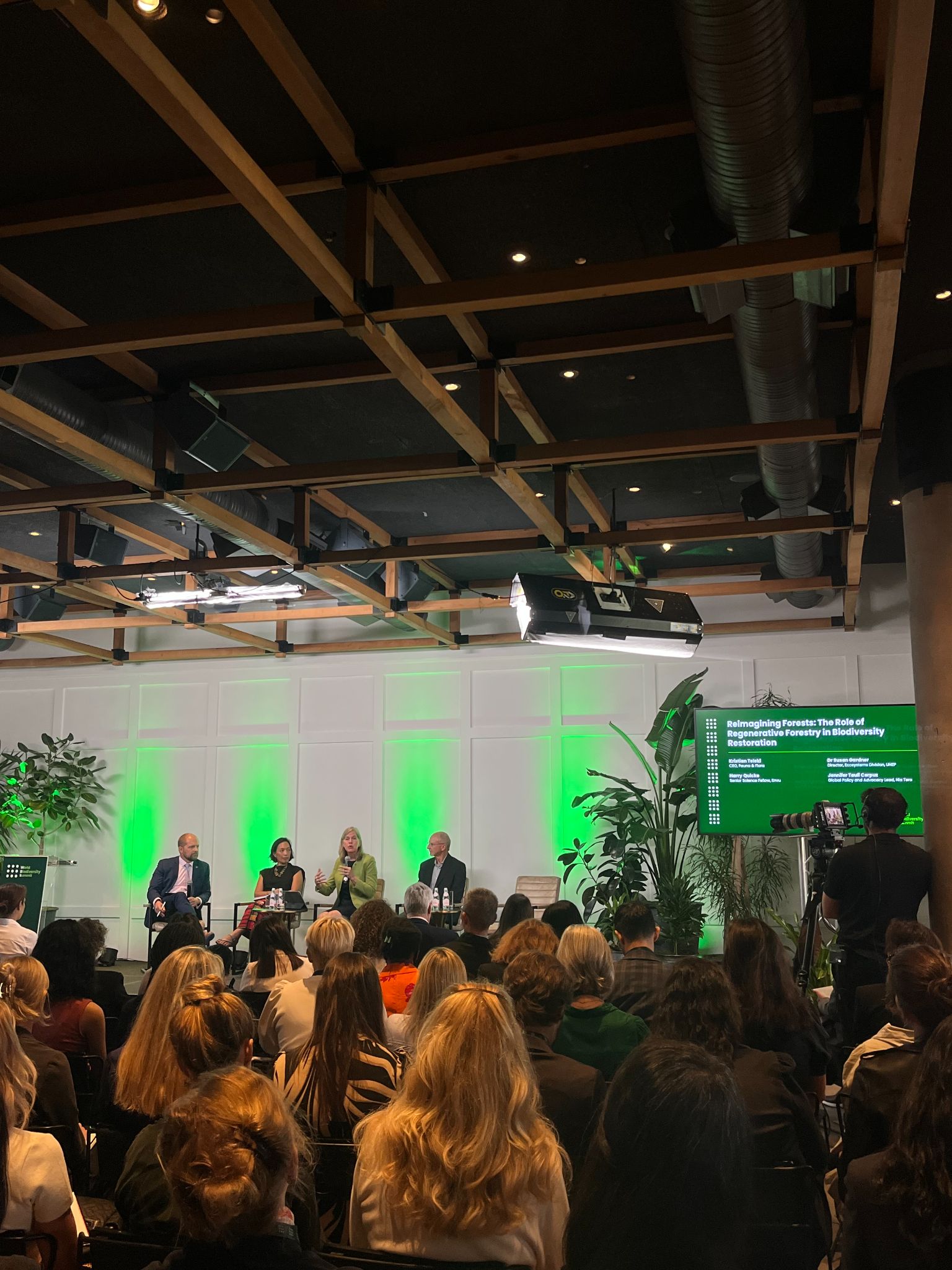School of the Environment takes on Climate Week NYC 2023
Students from the Yale School of Environment joined thousands in New York for this year’s Climate Week.

Courtesy of Daniela Macaya
Students and faculty from the Yale School of the Environment joined thousands of climate change activists, scholars and government leaders in New York City from Sept. 17 to 24 for Climate Week 2023.
Organized by Climate Group –– an international nonprofit that works with government leaders and businesses to address environmental issues — Climate Week offered a series of events and panels centered around climate change and its societal impacts. The events coincided with the U.N. General Assembly’s High-level Week, where officials convene to discuss global sustainable development goals.
“[Climate Week] serves as a forcing moment for countries to get together,” said Nate Warszawski ENV ’25, who attended Climate Week. “There’s an element of peer pressure — of social pressure for countries to be more active and commit to things that might otherwise be brushed off.”
Now at Yale, Warszawski is continuing his work as a research associate for the World Resources Institute, a sustainability nonprofit. At Climate Week, Warszawski helped organize a dialogue between WRI and Germanwatch, a German nonprofit that studies innovative ways countries can adapt to climate change.
Warszawski told the News that events like Climate Week are essential, as they allow scholars to come together and learn from one another about how to respond and prevent future catastrophes. Climate change is a daunting challenge, he says, but the event reminded him that they can take on the challenge as long as people across the world work together.
Caroline Benedetti ’24, who works at the Yale Carbon Containment Lab, attended multiple Climate Week events, ranging from panels on climate change awareness to art exhibits. The wide variety of events, she said, underscored the importance of climate change in a way that felt approachable.
“One of the biggest issues with the climate crisis and climate communication is that it can be something that feels overwhelming to people,” Benedetti said. “Internationalized programs like Climate Week really help make it feel more accessible.”
Benedetti participated in one event called “Hollywood and Climate Change,” where representatives from different areas of the entertainment industry discussed different ways climate change is portrayed in film and media.
She told the News that cultural productions can impact people’s perceptions of climate change.
“Almost all climate media today is super dystopian, rather than utopian,” Benedetti said. “In the 20th century, it seemed that there was much more hope.”
Like Warszawski, Benedetti admired Climate Week’s ability to unite individuals from different backgrounds.
For her, it is crucial that environmentalists, government officials, professors, CEOs and even general climate activists participate in the events.
“With climate change, it is really important to have some degree of straight-line communications between different organizations,” Benedetti said.
Similarly, Daniela Macaya ’25, who has worked in conservation initiatives and is taking a class at YSE, told the News that clear communication between the private and public sectors is critical in combating climate change.
At one event that Macaya attended, Valerie Hickey, a global director for environment, natural resources and blue economy at the World Bank, also emphasized the importance of speaking the same environmental language.
“Especially when you come from a different environmental background, it can be difficult to learn all the financial jargon,” Macaya said. “If you’re working in the private sector at a bank or consulting firm, you essentially have your own language and mindset.”
Still, Macaya hopes that this approach does not discourage the financial industry from working with environmental groups.
She told the News that communication is the most important step for bridging the private and public sectors.
“If you don’t speak the same language, there are a lot of barriers to overcome,” Macaya said.
Though Macaya enjoyed Climate Week, she worried about the lack of youth representation at the events.
She told the News that the observation is emblematic of a lack of opportunities for young people to get involved in environmental matters.
“I just didn’t see as much involvement with the youth as I had hoped,” Macaya said. “There was a lot of talk about future generations, but there needs to be more opportunity for the youth to make their way into this space, and there needs to be an urgency about it.”
Macaya told the News that she hopes Climate Week will lead to meaningful legislative changes.
COP 28 — the U.N.’s climate change conference — will convene in Dubai, United Arab Emirates, from Nov. 30 to Dec. 12, 2023.







